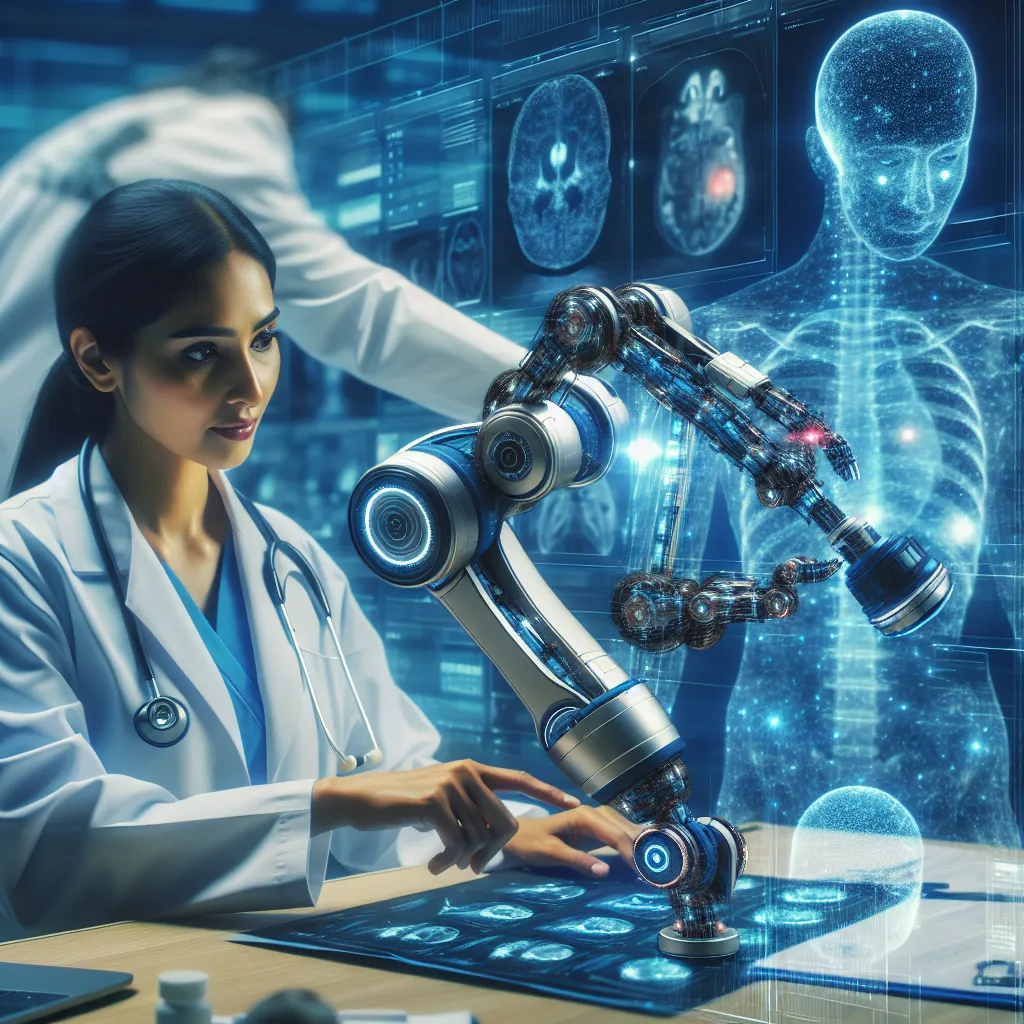AI-Powered Diagnostics: Transforming Healthcare Delivery
AI-powered diagnostics are revolutionizing the healthcare industry by significantly transforming healthcare delivery. The use of Artificial Intelligence (AI) in diagnostics holds the promise of more accurate and efficient disease detection, ultimately leading to improved patient outcomes. By leveraging machine learning algorithms and advanced data analytics, AI-powered diagnostics can process and analyze large volumes of medical data with incredible speed and precision, enabling healthcare providers to make more informed decisions in diagnosis and treatment planning.
One of the key advantages of AI-powered diagnostics is its ability to recognize complex patterns and subtle abnormalities in medical imaging, such as X-rays, MRIs, and CT scans. This can greatly enhance the early detection of diseases, including cancer, by capturing indicators that may be overlooked by the human eye. As a result, patients can receive timely interventions, leading to better prognoses and higher survival rates.
Moreover, AI-powered diagnostics can streamline healthcare delivery by automating routine tasks, reducing administrative burden, and optimizing resource allocation. This allows healthcare professionals to focus more on direct patient care, thereby improving overall patient experience and satisfaction.
In summary, the integration of AI-powered diagnostics in healthcare delivery has the potential to revolutionize the industry by enhancing diagnostic accuracy, improving timeliness of interventions, and optimizing resource utilization. As this technology continues to advance, it is poised to play a pivotal role in shaping the future of healthcare delivery, ultimately leading to better outcomes for patients and healthcare providers alike.
The Impact of Artificial Intelligence on Medical Diagnoses
The Impact of Artificial Intelligence on Medical Diagnoses
Artificial Intelligence (AI) is revolutionizing healthcare by significantly impacting medical diagnoses. AI-powered diagnostic tools enable healthcare professionals to make more accurate and timely diagnoses, ultimately leading to improved patient outcomes. By leveraging machine learning algorithms and vast amounts of medical data, AI can analyze complex patterns and detect subtle abnormalities that may go unnoticed by human clinicians.
One of the key advantages of AI-powered diagnostics is its ability to process and interpret diverse sources of data, including medical images, genomic data, patient records, and real-time physiological signals. This comprehensive approach allows for a holistic assessment of a patient’s health, leading to more personalized and targeted treatment plans.
Furthermore, AI can help in the early detection of diseases, enabling interventions at a stage when the chances of successful treatment are highest. For example, AI algorithms can analyze medical imaging scans to identify potential signs of cancer or other diseases with high accuracy, providing healthcare professionals with valuable insights to guide their diagnostic decisions.
As the field of AI continues to advance, the potential for improving medical diagnoses through AI-powered tools is immense. However, it is important to ensure that these technologies are integrated ethically and responsibly into healthcare practices to maximize their benefits while addressing potential challenges such as data privacy and algorithm bias.
In conclusion, the impact of artificial intelligence on medical diagnoses is transformative, offering unparalleled precision and efficiency in identifying and treating illnesses. As AI continues to evolve, its role in revolutionizing healthcare through advanced diagnostics will undoubtedly become increasingly significant, ultimately leading to better patient care and outcomes.
Advancements in Healthcare: Harnessing the Potential of AI
Recent advancements in healthcare have brought about a revolutionary transformation in the way diagnostic processes are conducted, thanks to the potential of artificial intelligence (AI). AI-powered diagnostics have significantly enhanced the accuracy and efficiency of medical diagnoses, leading to better treatment outcomes and improved patient care. By leveraging machine learning algorithms and data analysis, AI has the ability to process vast amounts of medical data in a fraction of the time it would take a human expert, leading to quicker and more precise diagnoses.
AI has the potential to revolutionize healthcare by enabling earlier detection of diseases, personalized treatment plans, and predictive analytics that can help in proactive patient management. Moreover, AI algorithms are constantly learning and evolving, which means that the diagnostic capabilities will continue to improve over time, ultimately leading to more effective healthcare delivery.
Furthermore, AI-powered diagnostics have the potential to reduce the burden on healthcare professionals, allowing them to focus more on patient care and treatment, while repetitive and time-consuming tasks are handled by AI systems. This can lead to increased productivity and efficiency within healthcare facilities, ultimately benefiting both healthcare providers and patients.
In conclusion, the advancements in healthcare driven by AI-powered diagnostics are paving the way for a new era of precision medicine and improved patient outcomes. As technology continues to evolve, the potential for AI to revolutionize healthcare diagnostics is truly limitless, offering hope for a future where healthcare is more accurate, efficient, and accessible for all.



